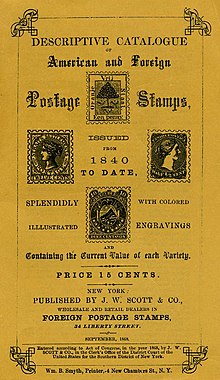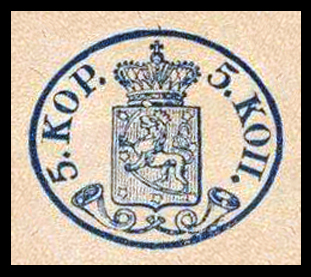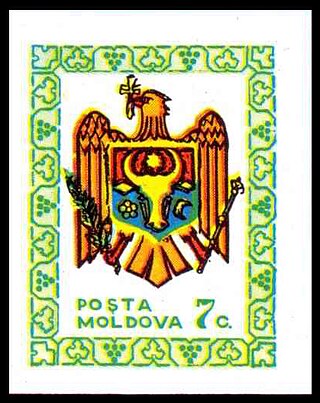This article is an incomplete list of stamp catalogs.
Contents

This article is an incomplete list of stamp catalogs.


Stamp collecting is the collecting of postage stamps and related objects. It is an area of philately, which is the study of stamps. It has been one of the world's most popular hobbies since the late nineteenth century with the rapid growth of the postal service, as a stream of new stamps was produced by countries that sought to advertise their distinctiveness through their stamps.

A cancellation is a postal marking applied on a postage stamp or postal stationery to deface the stamp and to prevent its reuse. Cancellations come in a huge variety of designs, shapes, sizes, and colors. Modern cancellations commonly include the date and post office location where the stamps were mailed, in addition to lines or bars designed to cover the stamp itself. The term "postmark" refers specifically to the part that contains the date and posting location, but the term is often used interchangeably with "cancellation" as it may serve that purpose. The portion of a cancellation that is designed to deface the stamp and does not contain writing is also called the "obliteration" or killer. Some stamps are issued pre-cancelled with a printed or stamped cancellation and do not need to have a cancellation added. Cancellations can affect the value of stamps to collectors, positively or negatively. Cancellations of some countries have been extensively studied by philatelists, and many stamp collectors and postal history collectors collect cancellations in addition to the stamps themselves.

This is a survey of the postage stamps and postal history of the Russian Empire, the Soviet Union and the modern Russian Federation.

A stamp catalog is a catalog of postage stamp types with descriptions and prices.
Each "article" in this category is in fact a collection of entries about several stamp issuers, presented in alphabetical order. The entries themselves are formulated on the micro model and so provide summary information about all known issuers.
Each article in this category is a collection of entries about several stamp issuers, presented in alphabetical order. The entries are formulated on the micro model and provide summary information about all known issuers.
Each "article" in this category is a collection of entries about several stamp issuers, presented in alphabetical order. The entries are formulated on the micro model and so provide summary information about all known issuers.
Each "article" in this category is a collection of entries about several stamp issuers, presented in alphabetical order. The entries are formulated on the micro model and so provide summary information about all known issuers.

Non-denominated postage is a postage stamp intended to meet a certain postage rate, but printed without the denomination, the price for that rate. They may retain full validity for the intended rate, regardless of later rate changes, or they may retain validity only for the original purchase price. In many English-speaking countries, it is called non-value indicator or non-value indicated (NVI) postage. They are used in many countries and reduce the cost of printing large issues of low-value make up stamps.

Finland has produced postage stamps for use since 1856.

The Navigation and Commerce issue is a series of key type stamps issued for the colonial territories of France. It was designed by Louis-Eugène Mouchon.

The postal history of Turkey and its predecessor state, the Ottoman Empire, dates to the 18th century when foreign countries maintained courier services through their consular offices in the Empire. Although delayed in the development of its own postal service, in 1863 the Ottoman Empire became the second independent country in Asia to issue adhesive postage stamps, and in 1875, it became a founding member of the General Postal Union, soon to become the Universal Postal Union. The Ottoman Empire became the Republic of Turkey in 1923, and in the following years, its postal service became more modernized and efficient and its postage stamps expertly designed and manufactured.

This is a survey of the postage stamps and postal history of Ukraine.

This is a survey of the postage stamps and postal history of Egypt.

This is a survey of the postage stamps and postal history of Moldova.

PTT, an abbreviation for Posta ve Telgraf Teşkilatı, is the national post and telegraph directorate of Turkey. Formerly, the organization was named Posta Telgraf Telefon. After the privatization of the telephone telecommunications service business, the directorate was renamed, keeping its acronym. It is headquartered in Ankara, and is known as Turkish Post internationally.